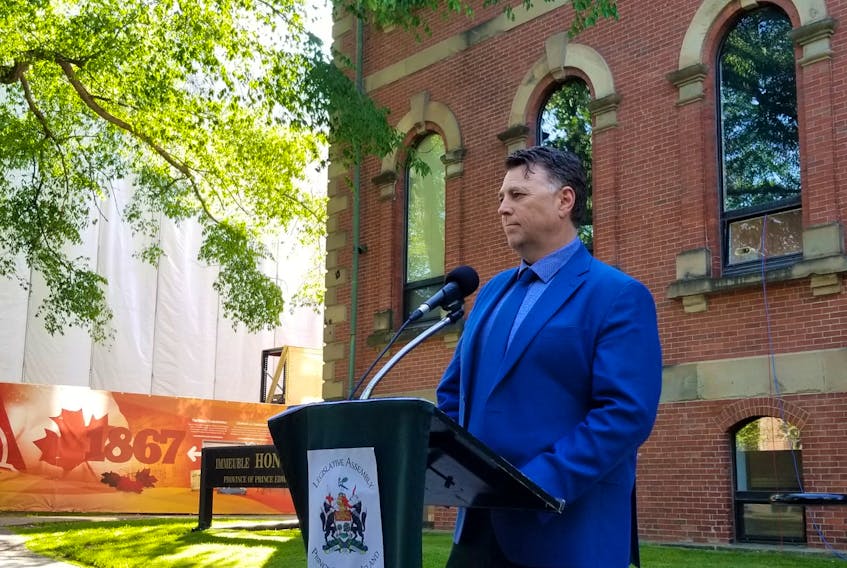Dear Premier King,
This open letter to you is in response to the recent announcement that you have created a Council for Recovery and Growth consisting of 31 Island individuals. Its task, as we understand it, is to establish a plan for recovery and growth for the province over the next one, two, five and 10 years. While we can’t predict the future, we do agree that it is important to plan.
One thing is clear: The recovery cannot involve a return to "business as usual." COVID-19 has laid bare the ways in which the pre-epidemic status quo was exploiting workers, failing to provide people with adequate and safe services and jeopardizing our community’s economic resilience.
Here in Prince Edward Island, the COVID-19 crisis has drawn our attention to many issues, gaps and inequalities, including:
- Essential grocery store workers are usually low paid, under-valued and non-unionized.
- Migrant workers fill essential, permanent jobs and are made vulnerable by a system that offers little hope for permanent residency in Canada.
- We rely on essential healthcare and childcare workers who are often poorly paid.
- Child care should be publicly funded and operated.
- Many Island families and individuals experience food insecurity.
- Corporate control of food production and processing hurts farmers and workers as well as land, air and water.
- Reliance on one or two agricultural products for export is short-sighted and wasteful and doesn’t provide ‘food security’ for the people of Prince Edward Island.
- Locally produced and processed food is essential, and its availability increases our resilience when there are disruptions in the global food system.
- Widespread dependence on tourism, which brings 1.6 million visitors every year, and an environmentally unsustainable cruise ship industry increases Prince Edward Island’s economic vulnerability.
- A publicly owned and operated Island-wide public transportation system is essential.
- It is necessary to reform, improve and standardize long-term care in Canada.
- The free market economy does not provide for or protect people, it simply contributes to the growing gap between the very rich and those who lack basic needs.
- Trade agreements such as the CETA, CPTPP and USMCA are not fair agreements.
We can not look to return to business as usual – that model wasn’t working for the environment, for workers and for people living on small incomes. If we want to be able to deal with future pandemics and at the same time deal with climate change and social inequality, then we need to make some fundamental changes.
Upon review of the interests and backgrounds of the 31 people who have been chosen to come up with an economic plan for recovery, we see major gaps. The committee as a whole reflects a limited view of what makes up an economy. In Prince Edward Island, the economy is made of public services, non-profit services and activities, small and large businesses, unpaid domestic labour, resources and ecological services provided by the natural environment, and the volunteer sector. A broad range of interests must be involved in the planning process.
Trade Justice P.E.I. believes that we need to approach the future following the COVID-19 crisis with a very different economic model if we are to build a socially just and ecologically sound future.
Therefore, Trade Justice is asking you as premier to ensure the following:
- That the recovery plan embody a vision of the future which boldly addresses the broad social and environmental issues we face, rather than a return to "business as usual".
- That all government decisions in the future be made and seen through lenses of climate change and social equity.
- That the recovery plan be guided by a strong belief in public investment, the provision of public services and publicly funded community-based non-profit services.
- That unionized and non-unionized workers be involved in the process.
- That the mandate of the Council for Recovery and Growth be broadened to include climate change and social equity.
- That given the potential impact of this committee on all people living in Prince Edward Island, it be reconstituted to reflect more diversity of views.
- That Indigenous rights be respected.
- That the process be transparent and democratic, and that an accessible, open public consultation process be developed and put into place in order that all Island residents have avenues for providing input into the plan.
We offer our suggestions in the spirit of working together.
Leo Broderick, on behalf of Trade Justice P.E.I., a coalition of 17 groups and individuals who are concerned about Canada’s current international trade agenda and who believe that it’s time for trade that is more democratic and environmentally sustainable, more supportive of a transition to a carbon neutral economy in which workers receive their fair share of the benefits, and which is more respectful of the rights of Indigenous peoples.








